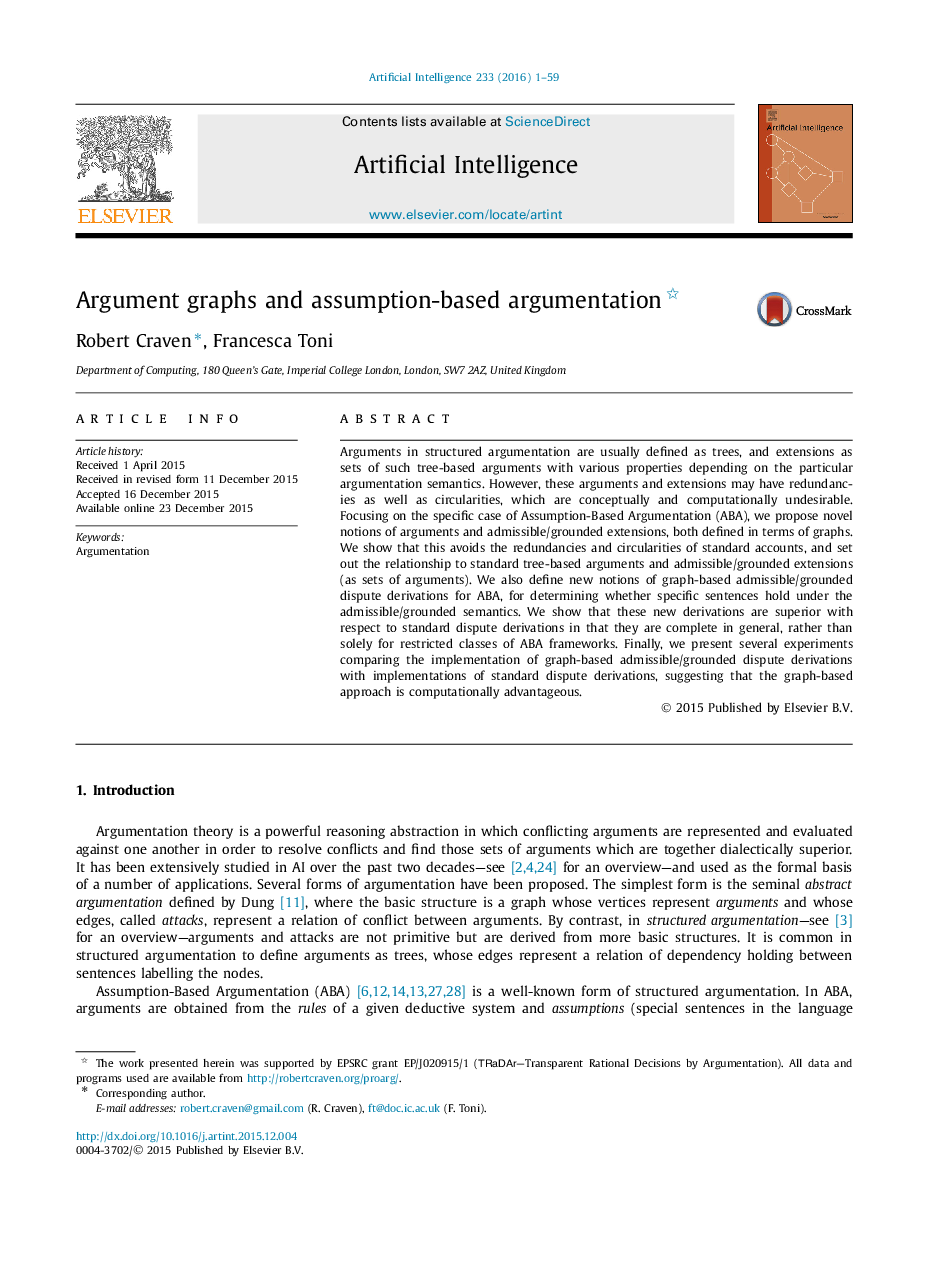| Article ID | Journal | Published Year | Pages | File Type |
|---|---|---|---|---|
| 376785 | Artificial Intelligence | 2016 | 59 Pages |
Arguments in structured argumentation are usually defined as trees, and extensions as sets of such tree-based arguments with various properties depending on the particular argumentation semantics. However, these arguments and extensions may have redundancies as well as circularities, which are conceptually and computationally undesirable. Focusing on the specific case of Assumption-Based Argumentation (ABA), we propose novel notions of arguments and admissible/grounded extensions, both defined in terms of graphs. We show that this avoids the redundancies and circularities of standard accounts, and set out the relationship to standard tree-based arguments and admissible/grounded extensions (as sets of arguments). We also define new notions of graph-based admissible/grounded dispute derivations for ABA, for determining whether specific sentences hold under the admissible/grounded semantics. We show that these new derivations are superior with respect to standard dispute derivations in that they are complete in general, rather than solely for restricted classes of ABA frameworks. Finally, we present several experiments comparing the implementation of graph-based admissible/grounded dispute derivations with implementations of standard dispute derivations, suggesting that the graph-based approach is computationally advantageous.
